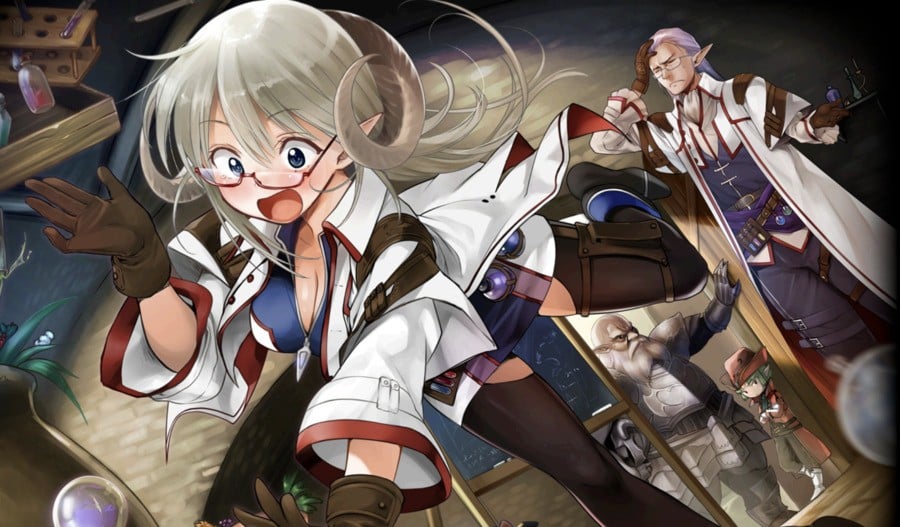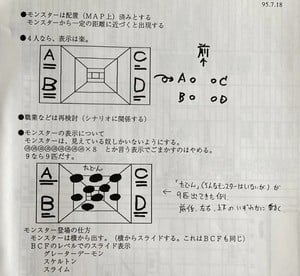
Masaki Nakagawa, a former employee at ASCII Corporation, has unearthed a pitch document for a Wizardry outing on the Nintendo Virtual Boy (thanks, GoldWing).
Nakagawa explains that he was not involved with the project personally, but recalls 'Wizardry Gaiden VB' being submitted during a planning meeting when he was working within ASCII's game division.
"In 1995, when this proposal was written, there were great expectations for Nintendo's next-generation console, the Nintendo 64, which would be released the following year in 1996," Nakagawa says. "At a planning meeting, in order to receive development equipment for the N64, I clearly remember the business manager saying, 'We're moving forward with the Virtual Boy project.'"
Nakagawa isn't sure if Nintendo was applying pressure to its third-party partners by making them take on Virtual Boy projects in order to receive N64 development kits, but muses that the the division manager may have reasoned that it would help Ascii's cause regardless.
Unlike previous Wizardry Gaiden titles, this game would have consisted of 50 short scenarios, each taking around 30 minutes to finish – a possible consideration of the fact that the Virtual Boy was uncomfortable to play for long periods of time, due to its autostereoscopic display and the fact that players had to sit hunched at a table in order to use it.
Nakagawa remembers thinking the ill-fated console's red display would be ideal for this game. "The Virtual Boy's game screen is monochrome, and the two colours used are red and black, the 'colours of hell.' Ever since I saw this proposal at a conference, I've been thinking that I'd like to play it when it's released."

As you've probably gathered already, Wizardry Gaiden VB never got beyond the pitch stage. "I think it was probably not developed or was forced to be cancelled due to the slump in Virtual Boy," reasons Nakagawa. "The reason why I say uncertain things like 'I think so' is because I left this division early, so I don't know much about future developments." He optimistically adds that, had the game been completed, it may have helped the troubled system achieve greater commercial success than it did. "It's such a shame that it wasn't released," he concludes.
Wizardry began life on the Apple II in 1981, with Andrew C. Greenberg and Robert Woodhead publishing their game via Sir-Tech. It was one of the first fantasy RPGs to gain popularity in the West, but it also gained a huge following in Japan and is believed to have influenced the creation of both Final Fantasy and Dragon Quest.
Wizardry 8 was the final game in the franchise to be produced by Sir-Tech and developed in the West. After 2001, the franchise shifted to Japan, and almost 40 different Wizardry spin-off titles have been produced in the country.
The smartphone game Wizardry Variants Daphne is the most recent, but this year, it was announced that Digital Eclipse would be reissuing the first game with the remake Wizardry: Proving Grounds of the Mad Overlord.
